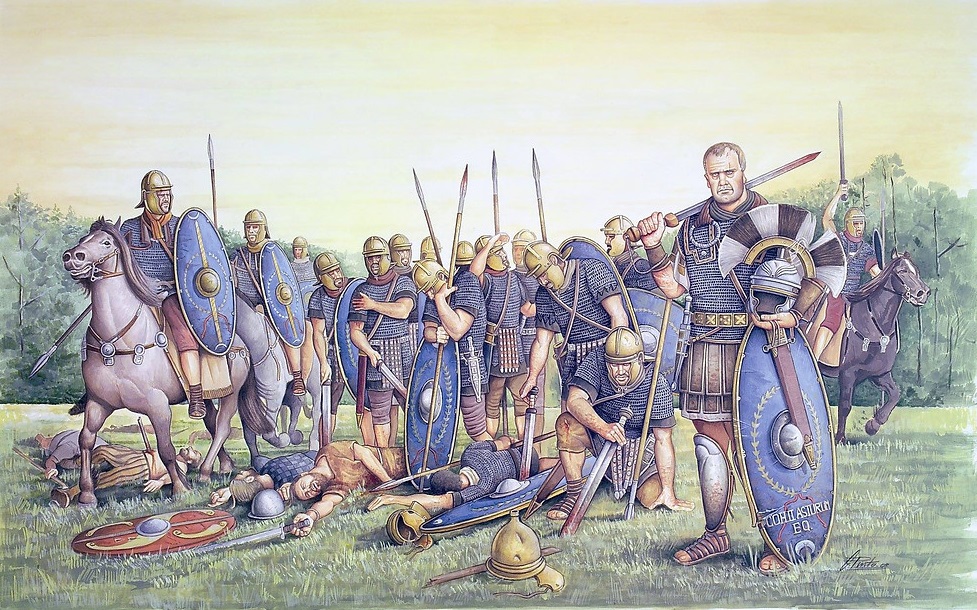As I argued in a recent post that regarded Roman Londinium, the first component ‘Lond-‘ in the name recommends a potential Germanic and more likely Frisian influence so poses the question whether the Romans actually deployed Germanic troops in their military campaigns over Britain.
The Romans were known to have already drafted in good numbers of Germanic troops by the late first century BC and early first century AD in their campaigns against Germania, a trend that increased with time.

As it turns out, the Romans indeed employed Frisian mercenaries as cavalry along their invasion of Britain (43 – 87 AD) so there is a possibility that some might have been stationed in Londinium during early Roman occupation.
Later on, the presence of Frisian auxiliary units (Cuneus Frisionum) is attested at Vercovicium(1), Housesteads in Hexham, between at least 222 and 235 AD and the Vinovia, near Bishop Auckland in County Durham, potentially starting even earlier among others in nowadays northeast England.
Cavalry units of the ala Vettonum, a Frisian cohort, could have also been stationed at the latter fort whilst the finding of terp Tritzum, trademark earthenware(2) fashioned in fourth century Frisia, in Kent suggests the settling of Frisian laeti(3) therein.
****************************************************************************************************
(1) The mention of Tuihanti, Germanic people likely settled around nowadays Twente (Netherlands), on two memorial stones has them apparently as part of the formation of the Frisian force stationed there.
(2) Pottery made of baked clay.
(3) People from outside the Roman Empire allowed to settle within Roman territory on condition that they would provide recruits for the Roman army.


